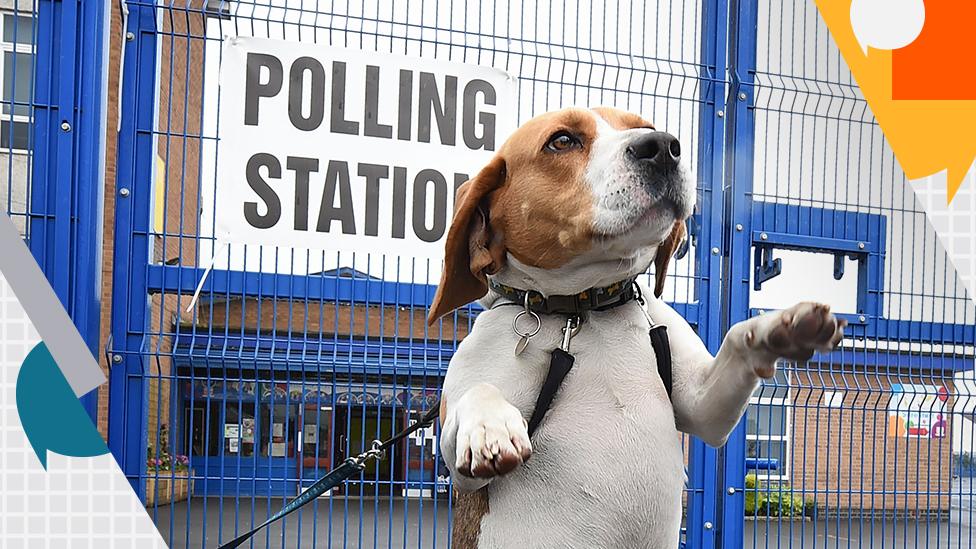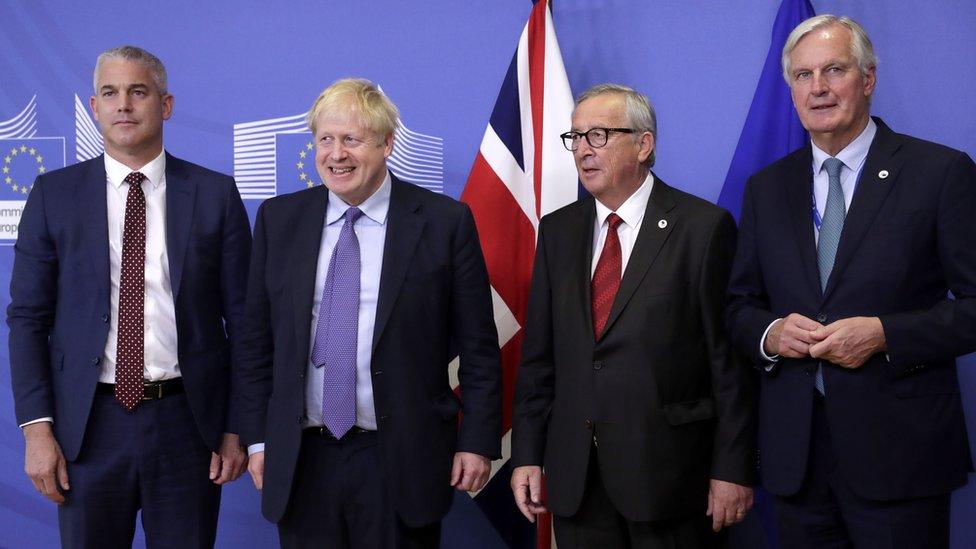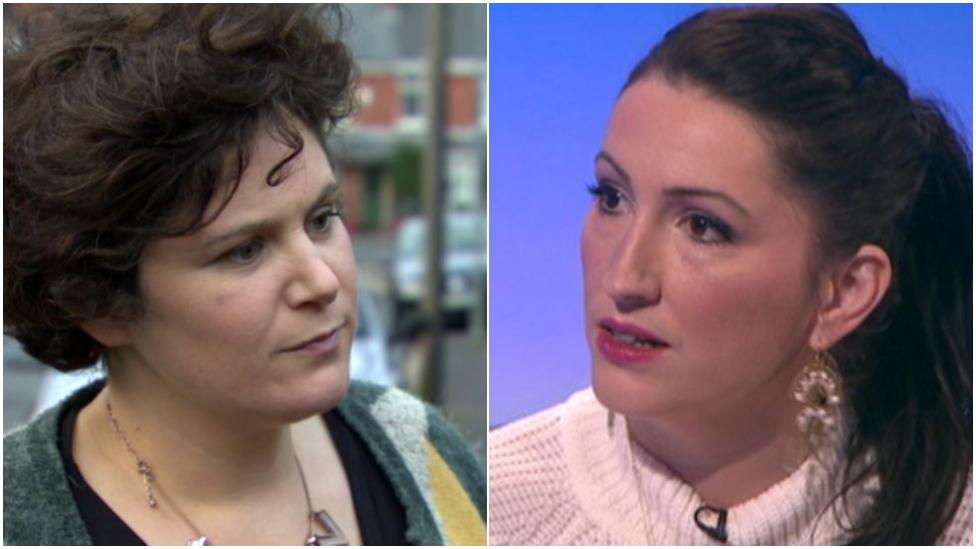Election 2019: Your Northern Ireland Questions Answered
- Published

As the general election campaign moves up a notch, our readers have been sending in questions about the campaign and what could lie in store after polling day.
Here, we answer a selection about the election and politics in Northern Ireland.
Why do some national political parties not stand in Northern Ireland? - Paul
The colours on the election results map in Northern Ireland are always very different to the rest of the UK.
No UK-wide party has ever won a seat in Northern Ireland, although the Ulster Unionist Party's MPs took the Conservative Party whip until 1972.
That partly explains why the big UK parties do not stand in Northern Ireland.

The colours on the UK election map show how different parties win seats in Northern Ireland compared to Great Britain
Traditionally the UUP was seen as the Northern Ireland "sister party" of the Tories, while the SDLP is viewed as the sister party of Labour, and Alliance has a similar position in relation to the Liberal Democrats.
Northern Ireland's politics has also traditionally been viewed as separate, with the so-called constitutional question - whether or not NI should remain part of the UK or join with the Republic of Ireland - dominating the debate.
However, some UK parties do regularly stand, including the Conservatives and UKIP. The Green Party in Northern Ireland also works in co-operation with its counterparts in England and Wales and Scotland.
What do the parties in Northern Ireland think of Boris Johnson's Brexit deal? - Judy Roberts
The Democratic Unionist Party (DUP) is strongly opposed to the deal because it includes a different type of special arrangement for Northern Ireland.
The DUP says it cannot back a plan that threatens the union.
It has called for a "sensible deal" to be renegotiated by the UK and EU.

Boris Johnson agreed a Brexit deal with the EU, but many Northern Ireland parties remain less than impressed
The Ulster Unionist Party (UUP) is also strongly opposed for similar reasons. Party leader Steve Aiken said he would rather support the UK remaining in the EU than sign up to the deal.
Sinn Féin said Boris Johnson's deal was a "least worst option" which would "only mitigate the worst effects of Brexit".
The party has campaigned for Northern Ireland to have what it calls "designated special status" within the EU,
The SDLP has advocated for the UK remaining in the EU but also said Mr Johnson's deal is better than a no-deal Brexit.
The Alliance Party has called for the deal to be put to a public vote in a further referendum, with the option of remain on the ballot paper.
Can the DUP hold on in South Belfast? - Cyrus McCormick
The party certainly seems to be facing an uphill battle. It has only ever won the seat once, in 2017 when Emma Little-Pengelly took it by a margin of 1,996 votes.
At that election the SDLP was in second place with 11,303 votes to the DUP's 13,299, while Alliance was third with 7,946 and Sinn Féin was fourth with 7,143.
This time around Sinn Féin has stood aside in an attempt to help elect a pro-remain MP.

Claire Hanna of the SDLP (L) will be hoping to regain the seat for her party from the DUP's Emma Little-Pengelly
A large proportion of the party's votes from last time could reasonably be expected to go to the SDLP as they are both nationalist parties, which would make it the favourite to win.
The Green Party is also standing aside, having won 2,241 votes two years ago.
But there is also the possibility that Alliance, which is not standing aside in any constituency, could take votes away from the SDLP, or that the DUP's vote could simply go up, helping Mrs Little-Pengelly to win again.
The Ulster Unionists are standing in the constituency as well, dismissing pressure to agree a pro-union pact to help the DUP.
As with any marginal seat, it is simply very difficult to predict the outcome.
As an American, I'm curious what sort of affect the recent abortion changes will have on the campaign? Will it be a deciding factor anywhere? - Brent Leatherwood
New kids on the political block Aontú will certainly hope so. The party was founded in January by former Sinn Féin TD (member of the Irish Parliament) Peadar Tóibín who quit that party over his anti-abortion views.
It has faced two electoral tests so far - the local elections in Northern Ireland and the Republic of Ireland - and had four councillors elected.
As a republican party, Aontú will realistically hope to take votes off the SDLP and Sinn Féin rather than seriously hoping to secure a seat.
The SDLP officially has an anti-abortion stance but allows its members to vote with their consciences, while Sinn Féin supports the right of women to have abortions "within a limited gestational period".
Aontú has attacked both parties over the issue.
There are certainly a number of people who would have voted for those parties in the past who now feel uncomfortable with their stance on abortion, but will that alone be enough for them to switch to Aontú?
And how many of them are there when compared with younger voters who tend to take a more pro-abortion stance overall?
Aontú will almost certainly come away without any MPs, but in tight seats such as Foyle it could play a big role in deciding the eventual winner.

What are your questions about the general election? You can let us know by completing the form below.
In some cases your question will be published, displaying your name and location as you provide it, unless you state otherwise. Your contact details will never be published. Please ensure you have read the terms and conditions.
If you are reading this page and can't see the form you will need to visit the mobile version of the BBC website to submit your question or send them via email to YourQuestions@bbc.co.uk, external. Please include your name, age and location with any question you send in.